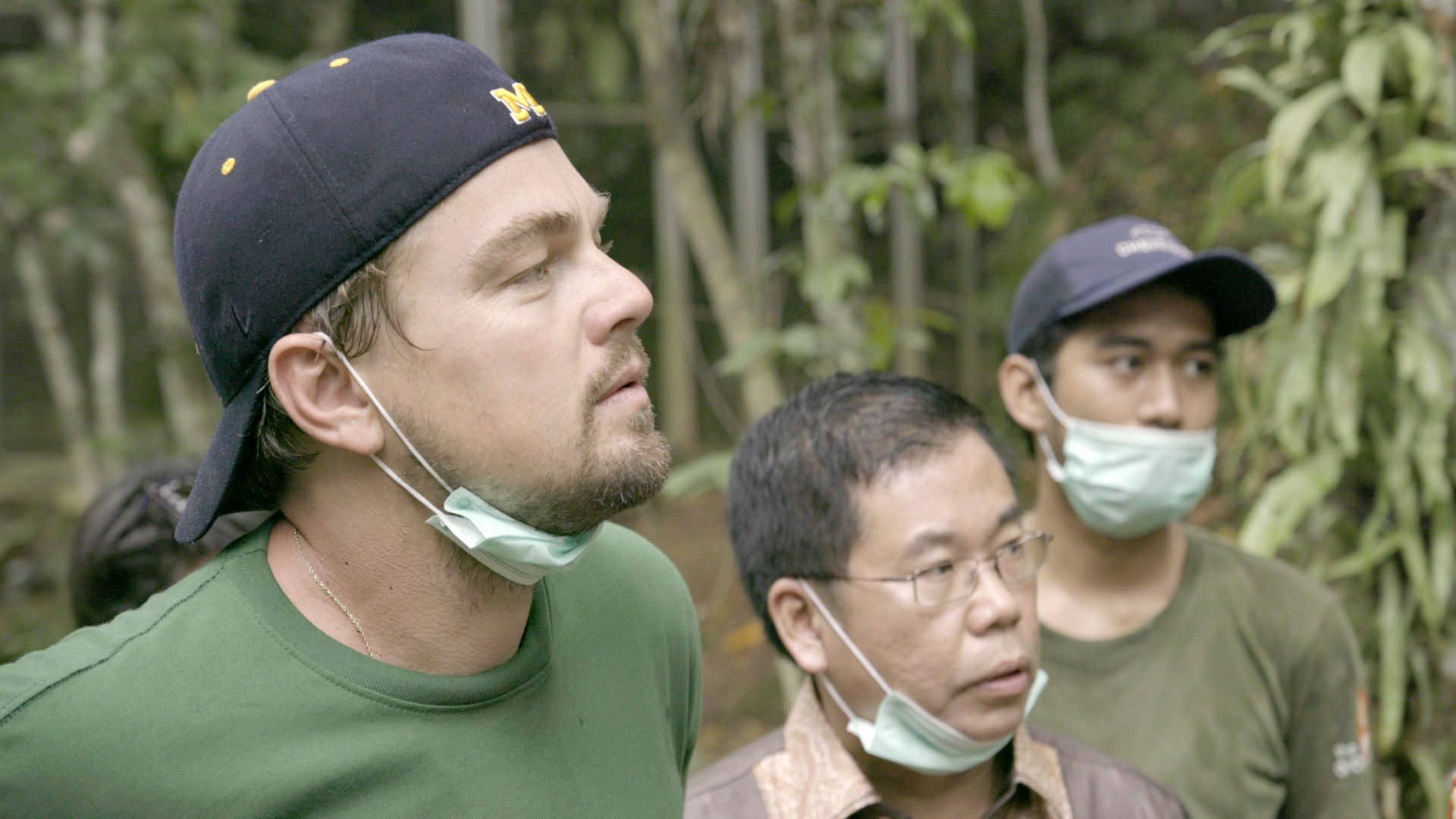Climate change was not a spotlight issue during the 2016 U.S. election.
Rather, it was for the most part ignored while matters of human injustice and bigotry took the center stage — as they should. But now that Trump is the president-elect, climate change deniers are going to have an even greater hold in executive offices and Congress, with the opportunity to potentially reverse any and all progress made toward protecting our planet.
Since U.S. citizens cannot currently rely on their government officials to tackle the numerous issues associated with global warming, it means that individuals have to action. They must inform themselves on the various facets of climate change and learn how they can combat it on a personal level, while reaching out to their representatives and demanding change.
Leonardo DiCaprio aims to help people do just this in his new film “Before the Flood” — a National Geographic documentary that follows DiCaprio’s journey as he travels across the world to witness climate change firsthand and to discuss its effects with leading scientists, politicians and even the Pope.
The project started a little over two years ago when United Nations Secretary-General Ban Ki-moon designated DiCaprio as the UN Messenger of Peace on climate change as a way for DiCaprio to start inciting change by providing details on the different ways individuals can strive to help the environment.
The documentary, now available to stream for free on YouTube and National Geographic’s website, is successful in many ways. It provides entry-level knowledge on the many issues and causes surrounding climate change — pollution, overfishing, the cattle industry, the palm oil industry, CO2 levels — for those that may know little to nothing about it.
http://https://www.youtube.com/watch?v=6UGsRcxaSAI
For example, DiCaprio spends a good portion of the film discussing the massive environmental impact the cattle and palm oil industries have on the planet, something that has been frequently ignored or covered up. It was also refreshing to hear DiCaprio explain how right-leaning politicians such as Paul Ryan, John Boehner, Marco Rubio and Ted Cruz are able to completely discount scientific facts because they are receiving hefty payments from the Koch Brothers and other fossil fuel interests for keeping the public divided and confused on the issue.
DiCaprio’s stardom also brings a lot to this film. Most documentaries about climate change are watched by people who already know and care about the issue. But due to DiCaprio’s fame, he is able to push the film’s topic out to his fans, hopefully initiating some concern and traction in groups of people that may not have cared about the environment prior to their viewing of the film. It’s also simply fun to watch Leo trek through the arctic, snuggle with elephants or gawk at narwhals as they breach the ocean’s surface.
And while some people may question a celebrity’s involvement with such a delicate topic, DiCaprio has proven himself to be an outspoken environmental voice in recent years, using his celebrity status to push for change. He is actively participating in events and campaigns seeking to support environmental efforts, has raised nearly $60 million for various climate-focused organizations and even used his acceptance speech at the Oscars to call for support toward political representatives acting to protect the environment.
The documentary is also gorgeous, which is to be expected of a National Geographic film. The footage jumps between being breathtaking and heartbreaking, depending upon the state of the environment in the location their filming. The footage is also supplemented by simple infographics and a lot of credible voices, both of which help to explain topics that can be quite difficult to understand.
However, “Before the Flood” is not a great documentary for those who already have a general understanding of climate change. If one has seen films such as “Cowspiracy,” “Chasing Ice” and even the now outdated “An Inconvenient Truth,” “Before the Flood” feels completely lackluster. It offers hardly anything new on the climate change debate that hasn’t already been extensively covered in the numerous documentaries already produced on the topic.
Essentially, the film highlights the many components of climate change, but it doesn’t delve into details. It also has the tendency to leave a lot of unanswered questions as the film quickly jumps from one subject to the next, probably due to time constraints. This makes the documentary feel like it was trying to achieve too much.
“Before the Flood” also doesn’t offer much for hope. DiCaprio frequently comes across as a despondent and pessimistic narrator—which is understandable considering the state of things. But as Neil Genzlinger of the New York Times writes in his review, “The film wants to spur individual changes in behavior, but there’s a fair amount in it that might discourage you from even trying.” Which is the exact opposite of what an environmental activist wants to achieve, and so it greatly deters from “Before the Flood’s” cause.
Genzlinger also points out, “This film promises early on to set itself apart by detailing specific things individuals can do to mitigate the environmental damage, but those suggestions end up being disappointingly few.”
The main (and kind of only) suggestion detailed throughout film is that in order for individuals to have a significantly positive impact on the environment, they’re going to need to change their diets. This means — if not completely cutting out — greatly reducing their consumption of beef and products that contain palm oil.
But suggesting lifestyle changes, particularly in regards to what people eat, usually yields very little results (which is so unfortunate because these dietary changes would have an incredible impact on ceasing global warming). And “Before The Flood” does not make nearly as compelling an argument for this as other films, particularly “Cowspiracy,” do.
“Before the Flood” also feels slightly outdated, even though it was only released a month ago, at the end of October 2016.
A good portion of the film is requesting viewers to use their votes wisely during elections by supporting candidates and politicians that are willing to take actions that will curtail global warming. But clearly the film didn’t get the message across fast enough, because climate change denier Donald Trump is now the president-elect, and he is already putting infamous climate change contrarians in charge, particularly with Trump’s selection of Myron Ebell heading the EPA’s now precarious future.
But of course, voting for progressive politicians isn’t something that has ended with the 2016 elections. It’s something that will continue to require attention for years to come. And because politicians act the way the American people want them to act, we need to do as DiCaprio instructs at the end of his film. “We need to use our vote to tell our leaders that we know the truth about climate change.”
Overall, this film is a great introduction to the issues, but it is not a movie people should turn to when they genuinely want to learn about the state of our planet. “Before the Flood” offers a jumping off point, but there are plenty of other resources and documentaries that handle the topic with more care and profundity.

















